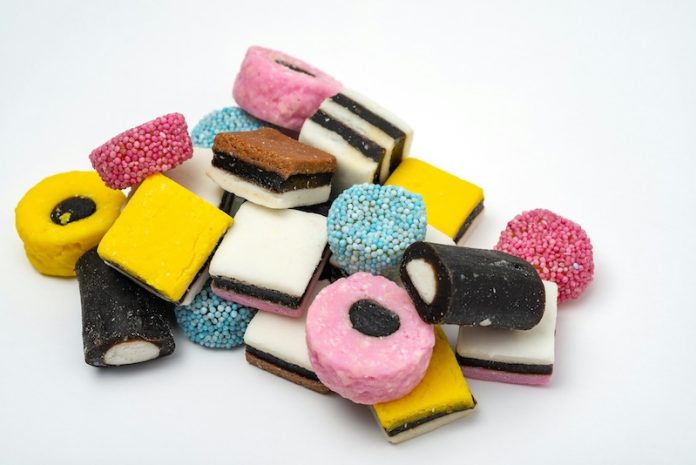
Researchers at Linköping University have found that even small amounts of licorice can raise blood pressure, a discovery that adds to the complex nature of this popular candy.
Many people enjoy its unique taste, but this new study shows that it can have serious effects on health, especially for those who react more strongly to it.
Licorice comes from the root of the Glycyrrhiza plant and has been used for centuries both as a medicine and as a flavoring in sweets.
However, its sweet taste is due to a compound called glycyrrhizic acid, which can upset the body’s fluid balance by affecting kidney enzymes. This disruption can lead to higher blood pressure, which is a risk factor for heart disease.
Health authorities like the European Union and the World Health Organization say that consuming up to 100 mg of glycyrrhizic acid daily is generally safe for most people. However, data from the Swedish Food Agency indicates that about 5% of Swedes consume more than this recommended amount.
The recent study, published in the American Journal of Clinical Nutrition, aimed to test this “safe” limit. Given the different levels of glycyrrhizic acid in various licorice products and the fact that these levels are often not listed on packaging, the researchers conducted a carefully controlled experiment.
They recruited 28 healthy young adults, aged 18 to 30, and divided them into two groups. Over two separate periods, participants were given either licorice containing 100 mg of glycyrrhizic acid or a control product with salmiak (a salty-tasting ingredient) but no licorice essence.
This design allowed the researchers to directly compare the effects within individuals by switching the products and including a two-week break in between.
Participants measured their blood pressure daily at home throughout the study. The researchers also conducted thorough evaluations at the end of each period, checking hormone levels, salt balance, and heart workload indicators.
The results were surprising: even the “safe” amount of licorice led to an increase in blood pressure. On average, blood pressure rose by 3.1 mmHg.
Additionally, the study found decreases in the hormones renin and aldosterone, which are crucial for regulating fluid balance, when participants consumed licorice.
Notably, those who had the most significant hormonal changes also experienced weight gain, likely from fluid retention, and higher levels of NT-proBNP, a marker indicating greater heart effort.
These findings challenge the current understanding of licorice consumption, suggesting that even amounts previously considered safe might not be harmless. For those more sensitive to glycyrrhizic acid’s effects, the implications for blood pressure and heart workload are concerning.
As the research community considers these findings, there is a growing call for clearer food labeling and increased public awareness about the potential risks of licorice.
This study not only warns against the casual consumption of licorice but also highlights the complex relationships between diet, heart health, and the body’s fluid balance.
If you’re concerned about high blood pressure, it’s also worth looking into other studies about foods that affect blood pressure.
For example, potatoes and certain diets can have a significant impact. Research has shown that a diet rich in potassium can help manage blood pressure levels.
For more detailed information on managing high blood pressure, recent studies about the impact of vitamins and the benefits of a potassium-rich diet are worth exploring.
The complete findings of this study can be found in The American Journal of Clinical Nutrition.
If you care about high blood pressure, please read studies about potatoes and high blood pressure, and top 10 choices for a blood pressure-friendly diet
For more information about high blood pressure, please see recent studies about impact of vitamins on high blood pressure you need to know, and the powerful link between high blood pressure and a potassium-rich diet.
Copyright © 2024 Knowridge Science Report. All rights reserved.



